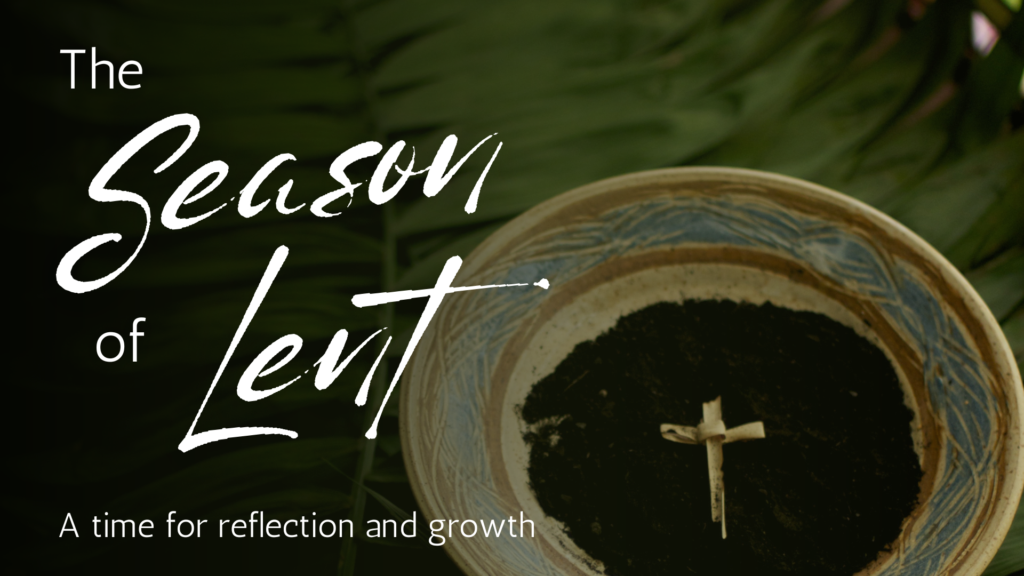
Understanding Lent
As we continue to embrace and celebrate our school district’s diverse beliefs and traditions, this week’s DEBI Corner highlights Lent, a significant observance in many Christian communities worldwide. Lent is a time of spiritual reflection, discipline, and preparation, observed by millions of people across different denominations. Whether you personally observe Lent or are simply interested in learning more about the traditions of your peers, understanding this season fosters respect and inclusivity within our diverse community. By gaining insight into religious observances like Lent, we can create a more welcoming environment where students, staff, and families feel seen and valued.

What is Lent?
Lent is a 40-day period of reflection, fasting, and preparation leading up to Easter Sunday. Observed primarily by Catholic, Orthodox, and some Protestant denominations, Lent is a time for spiritual renewal, self-discipline, and deepened faith. The 40 days symbolize the time Jesus spent fasting in the desert, resisting temptation, before beginning his public ministry.
The purpose of Lent is to encourage individuals to grow spiritually by focusing on prayer, self-examination, and acts of service. It is a time of renewal where participants seek to strengthen their relationship with God, practice repentance, and cultivate habits that reflect compassion and humility.
When does Lent start?
Lent begins on Ash Wednesday, which falls on March 5, 2025, and concludes during Holy Week, which includes several key observances:
- Palm Sunday: Marks Jesus’ triumphant entry into Jerusalem, where crowds welcomed him with palm branches.
- Maundy Thursday: Commemorates the Last Supper, where Jesus shared a final meal with his disciples.
- Good Friday: A solemn day remembering the crucifixion of Jesus and his sacrifice.
- Holy Saturday: A day of waiting and reflection before Easter Sunday.
These days typically coincide with Spring Break, allowing students and staff time to observe and reflect on their faith traditions. Many Christians mark the season through various traditions, including:
- Receiving Ashes: On Ash Wednesday, participants receive ashes on their foreheads in the shape of a cross as a symbol of humility and repentance. The ashes come from burned palm branches from the previous year’s Palm Sunday services.
- Fasting and Abstinence: Many abstain from eating meat on Fridays and practice fasting on specific days as an act of sacrifice and spiritual discipline. Fasting typically involves eating only one full meal per day, with two smaller meals that do not equal a full meal.
- Prayer and Reflection: Increased focus on prayer, reading religious texts, and attending worship services. Many believers take time each day to reflect on their faith journey and seek spiritual guidance.
- Almsgiving: Acts of charity and service to others are emphasized as a way to live out faith through generosity. This can include donating money, volunteering, or performing acts of kindness.
- Personal Sacrifices: Many individuals give up certain luxuries, such as sweets, social media, or other habits, to cultivate self-discipline and devotion. Others take on new practices, such as daily gratitude journaling or committing to acts of kindness.
Upcoming initiatives
As a district committed to inclusion and belonging, we encourage respectful recognition of diverse religious observances. Here are some ways we can be mindful of students, staff, and families observing Lent:
- Being aware of dietary restrictions: Many observers avoid meat on Fridays, so offering vegetarian meal options in school cafeterias can be helpful.
- Encouraging discussions: Teachers can foster respectful conversations about religious traditions, allowing students to share their experiences and learn from one another.
- Providing quiet spaces: Schools can offer designated areas where students and staff who observe Lent can engage in personal prayer or reflection.
- Supporting students who may be fasting: Educators and staff can be mindful of students who are fasting and offer accommodations for alternative activities during high-energy physical education classes.
- Recognizing the significance of Holy Week: Understanding that some students may be absent or have religious obligations during this time can help educators and administrators plan accordingly.
Building an inclusive school culture
Lent is a time of reflection and growth for many in our community. By learning about and acknowledging these observances, we continue to cultivate a school culture that values diversity, equity, and belonging. Our district remains committed to fostering an environment where all students and staff feel respected, included, and supported in their personal and cultural identities.
Why understanding religious observances matters
Religious diversity is a fundamental aspect of our community, and fostering awareness of different traditions enhances empathy, respect, and connection among students and staff. By recognizing observances like Lent, we promote an educational environment where all individuals feel valued and included.
We invite everyone to engage in open, respectful conversations about different religious traditions and to approach learning about Lent with curiosity and kindness. By embracing the diversity within our district, we strengthen our shared commitment to understanding, unity, and inclusivity.
Share Your Story
We want to hear from you! Your lived experiences, traditions, and insights are invaluable as we work together to build bridges and celebrate our community’s diversity. Share your story with us—whether it’s about your cultural heritage, a meaningful tradition, or a perspective that’s shaped your journey.
Have thoughts, feedback, or ideas for SOAR Corner? I’d love to hear from you. Let’s continue this journey, hand in hand.
Click Here to submit a topic and details. We will credit your submission.
